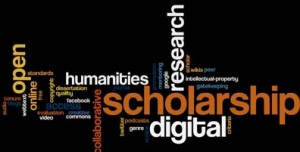Digital Scholarship
Digital Media and the Future of Humanities Scholarship
Megan Adams, Estee Beck, Kris Blair, Lee Nickoson, Lewis Ulman
Building Digital Scholars:
- How can digital scholars establish and sustain ethos within the departments in which they reside?
- How can graduate students and faculty begin to acquire and sustain technological literacies needed to create digital scholarship? Given that we are continually confronted with new rhetorical modes, practices, and technologies, how can we better discern what to teach and use?
- In what ways might we encourage mentoring faculty members and graduate students who wish to produce digital scholarship?
- How can we make the labor associated with producing digital scholarship more visible to tenure and promotion committees?
- What are the collective responsibilities of job candidates, senior colleagues, department chairs, and faculty evaluation committees to value digital scholarship?
Growing Practice(s):
- How can and should our understanding of peer review change in digital environments?
- How might certain genres such as the dissertation be re-invented in digital form?
- What is the role of collaboration in the digital composing process? How does digital scholarship understand the relationship between author, reader, and collaboration?
- What types of existing digital networks help cultivate and sustain partnerships in international communities for digital scholarship opportunities?
- As technology rapidly shifts with version updates and new platforms, how do digital scholars archive and “re-digitize” existing digital scholarship?
- What does digital scholarship mean for how we teach and practice humanities research methods?
Ethical Considerations:
- What spaces, relationships, and identities does digital scholarship perhaps marginalize or silence?
- How can or should digital scholars ethically engage with digital communities with which they may be unfamiliar?
- How does digital scholarship afford accessibility, visibility, and usability for diverse audiences? How can we encourage better practices in terms of making digital scholarship more accessible?
